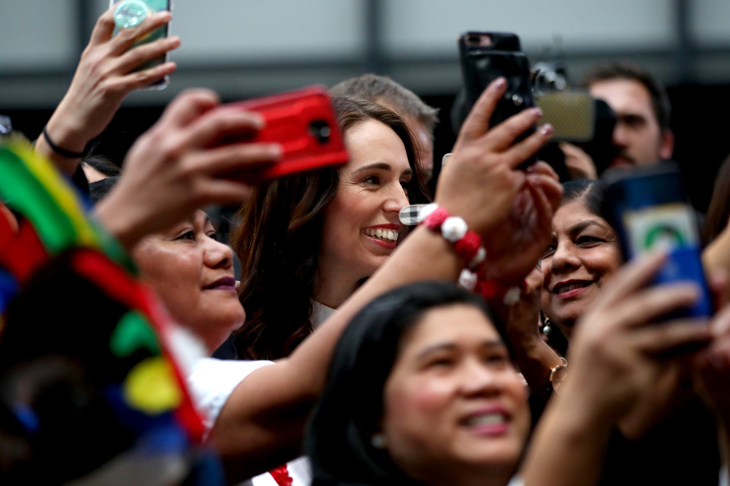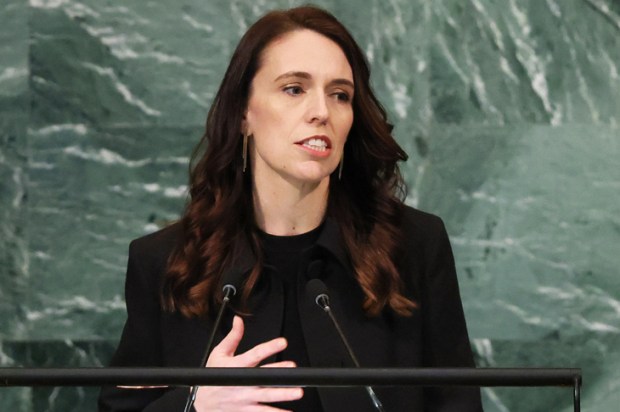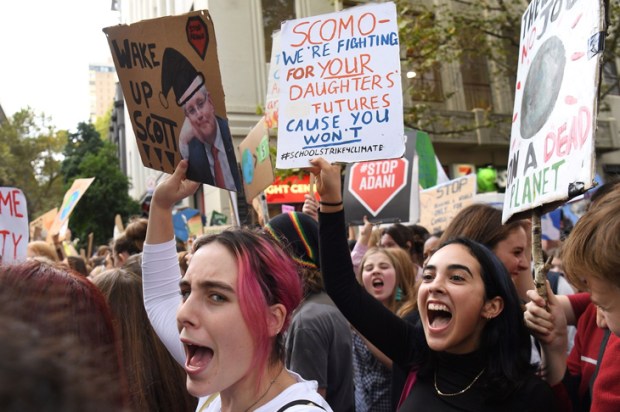I reckon that I’m in a relatively small group of Australians. When asked, ‘Who has handled the coronavirus better, New Zealand or Sweden?’, I would say Sweden. My bet is that most Australians would plump for the Kiwis. After all, the virus has been all but eradicated across the Tasman. Only a couple of confirmed cases right now in the whole country. Only 22 deaths all up due to the virus. Meanwhile in Sweden there have been some 5,700 deaths for a population not much over double New Zealand’s.
That said, the problems with the Kiwi ‘try to eradicate’ approach are legion. To name just a couple, tourism constitutes somewhere between 6 and 20 per cent of the NZ economy, depending on how many indirect benefits and how much of the travel sector you count. Pretty hard to mimic 17th century Japan, with borders closed to all the world’s potential infectors and still have anything much left of those industries. In effect, then, the Kiwis are betting the farm on a vaccine. Meanwhile, the looming economic carnage is going to carry in its wake a less well-funded health care system, plenty of indirect deaths, massive inter-generational unfairness and a hobbled private sector.
At the same time, up in Sweden they look to be as close to herd immunity as anywhere on the planet. And don’t let anyone blow smoke in your eyes, the Swedish economy has weathered this virus better than most anywhere (save Taiwan) in the Western world.
Still, most of the press is doing all it can to convey coronavirus fear. They almost never say how these corona deaths rack up against other causes of death, or how for those under 55 this is not, statistically and comparatively, dangerous. They hardly ever mention what the economic carnage will bring in its wake, certainly not in terms of deaths because of the lockdowns and shutdowns. They never deal in relative risks, or age-related differences. And so the heavy-handed, civil liberties-ignoring politicians are popular. Now in my view that popularity won’t last another year. But it’s very likely indeed to last till the 19th of September, a month and a half from now, when New Zealand’s voters go to the polls.
Some readers will recall that at the last election the right-of-centre National party won a landslide (namely just shy of 45 per cent) of the party vote, to Labor’s 37 per cent. Yet that maverick Kiwi politician Winston Peters’ party, New Zealand First, which came third with 7 per cent, opted to go into coalition with Labour and the Greens (to the stunning dismay of many of the New Zealand First voters who in Australian terms might fit best with the Katter Party or Canada’s now defunct Social Credit Party).
Partly this was Peters’ loathing of his own former party, the Nationals. And partly it was simply what can happen under a mixed-member proportional representation voting system(MMP); the system borrowed from Germany that sees more than half the MPs coming into parliament based on lists drawn up by the leaders of the parties. In my view, it’s a horrible voting system that puts huge power in the hands of the tiny parties and leads to all the political compromises taking place after the election in smoke-filled rooms of political hacks (unlike with our own system and with first-past-the-post systems where you have to compromise within your party and then put it to the voters).
Ask yourself what our press would say if Scott Morrison got to be PM with near-on ten per cent less of the vote than Labor? To ask is to answer.
At any rate, that’s what happened across the Tasman three years ago.
Peters gave us Labour PM Jacinda Ardern, a smarter version of Justin Trudeau albeit with different reproductive organs but the same sophomoric dislike of capitalism and inclination towards big government, not to mention the same enchantment with renewable energy targets that kill economies while doing nothing to alter the world’s temperature path. To state the obvious as regards such left-leaning governments and PMs, the public broadcaster there (and here, not to mention the Twittersphere internationally) loves her.
And with only six weeks or so till the next election she is miles ahead in the polls.
You need to realise that under the MMP voting system the only vote that matters is the one for your preferred party. And the latest poll shows Jacinda and Labour more than 20 points ahead (53 to 32). The Nationals have just recently changed their leader to a woman who – take note Scott Morrison – actually appears to believe in right-of-centre things and will voice them out loud.
But it may be too late. The good news, though, for those of an Old Testament disposition, is that Winston Peters and his New Zealand First party look likely to be ejected from parliament. Unless it wins an electorate seat, a party must pass a 5 per cent party vote threshold. In this recent poll New Zealand First, with no electorate seat, was at 2 per cent. Ouch! And Winston Peters was the least-trusted of all the party leaders (which is saying something), with 59 per cent of the poll respondents saying he was untrustworthy. Ask Messrs Windsor and Oakeshott what happens when you paint yourself one way to the voters then go the other after the election.
That said, in some ways the winner of this election will be handed a poisoned chalice, in large part for the reasons I mentioned above but also for others. The big aluminium smelter at the bottom of the South Island has announced its closure because electricity prices are too high. (Sound familiar?) It’s been subsidising costs for other users and that’ll be gone. And New Zealand is far farther along the political correctness and cancel culture path than we are. For one example, take the cancellation of a scheduled Lauren Southern and Stefan Molyneux talking tour. The venue’s only shareholder is a trust set up by the Auckland City Council to manage public venues. After threats aimed at the event and the mayor’s making clear the speakers’ ideas weren’t welcome, the Free Speech Coalition was formed over there to fund a judicial review of the cancellation. At first instance in the High Court, in a woeful decision, the judge found there was no public power exercised by the venue managers; no public function; they had no duty to explain the decision-making process; oh, and full costs against those bringing the judicial review because they were ‘on a crusade’ and it did not concern a matter of public interest. The appeal is being heard this month. Did I mention that the NZ Bill of Rights, in the hands of a woke judiciary, was useless, otiose and impotent in protecting free speech over there? Last thing. The NZ Human Rights Commission intervened in the case – but not on the side of free speech.
Got something to add? Join the discussion and comment below.
Get 10 issues for just $10
Subscribe to The Spectator Australia today for the next 10 magazine issues, plus full online access, for just $10.
You might disagree with half of it, but you’ll enjoy reading all of it. Try your first month for free, then just $2 a week for the remainder of your first year.














Comments
Don't miss out
Join the conversation with other Spectator Australia readers. Subscribe to leave a comment.
SUBSCRIBEAlready a subscriber? Log in